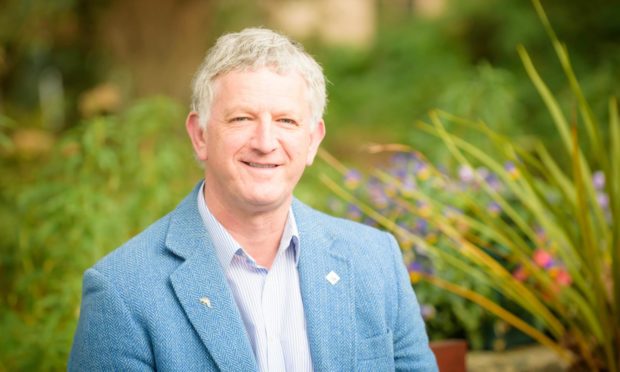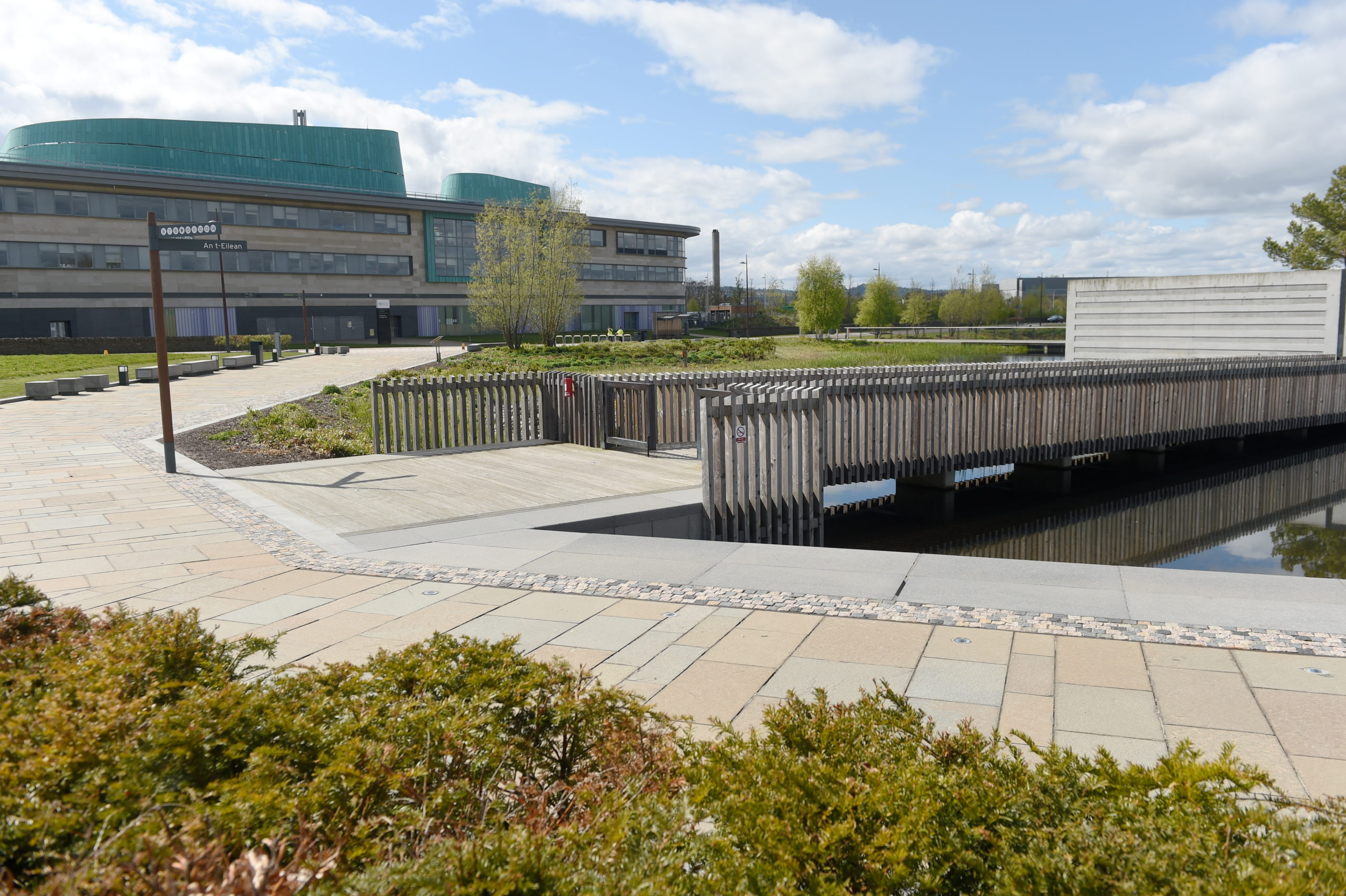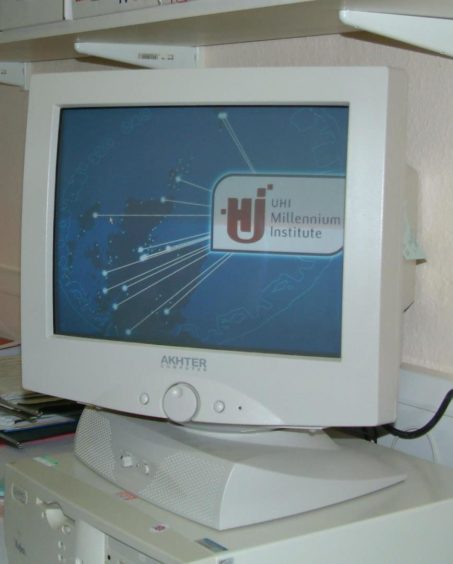The University of the Highlands and Islands’ experience in online learning has been a model for other institutions and businesses during the pandemic.
The university has for many years been using technology to deliver courses and link its 13 partner colleges and research centres.
As the institution marks its 10th anniversary of achieving university status, Professor Frank Rennie, professor of sustainable rural development and assistant principal of Lews Castle College UHI, looks back to its first online degree course.
A university of, for and in the Highlands and Islands
In 1989 he wrote about the need for a degree programme to accredit community workers in sustainable rural development “at something that may in the future be called the University of the Highlands and Islands”.
Three years later he was working with a team at Lews Castle College to develop a degree in rural development studies. A subsequent series of articles looking at “the hopes and fears, the myth and the reality, of creating a new university of, for, and in the Highlands and Islands”.
He said: “How many of those predictions have come to pass? Incredibly, most of them.
“Now 10 years after gaining the university title, this is probably as good a time as any to look at what we have achieved in that short time-span.
“The university now offers academic awards that span both further and higher education; from short practical courses to doctorates.
“The delivery might be by the conventional face-to-face format, or wholly online, or a mixture of both – so-called blended learning.
“The rural development degree was also the first programme to move fully online. It has largely been studied part-time, because most of our students are also working – many either in rural communities, or seeking to relocate to rural areas.
“Part of the reason for moving online was to avoid students in Lewis and Harris needing to drive long distances just to attend a one-hour lecture several times per week.
How many of those predictions have come to pass? Incredibly, most of them.”
– Prof Frank Rennie
“Firstly we put the weekly lecture notes online, then the additional reading materials, and then additional activities for students to self-test their gains in knowledge.
“It was no surprise that students started coming infrequently onto the campus, so we made that a strength of a more flexible course, and put everything online, linked to smaller interactive face-to-face tutorial sessions to discuss problem areas in depth. Now we have students all over the world.
“I have a strong belief that we need to take high-quality educational opportunities out to where people are – rather than uproot them (and disrupt their families) in order to move to city-based institutions.
“Providing access to advanced education wherever you live, allows people to continue with their work, family, and social life, without forgoing stimulating and specialist learning opportunities.
“In the current pandemic, this philosophy of providing flexible, online education, has come into its own.
“My transition into teaching from home has been an adjustment, but essentially it has been ‘business as usual’.
“There have been many more meetings by video-conference (rather than face-to-face) but there has also been increased access to wonderful online lectures and seminars by colleagues in the university and beyond.
“Although many lecturers, in the university, and other universities, may have had a tough time transitioning quite so rapidly into online education, many more have found that taking the plunge has opened up new and exciting ways of learning, and new networks to share their pet subjects.”
The best is yet to be realised
He added: “From the University of the Highlands and Islands having 13 main college campuses and more than 100 local learning centres, there are now hundreds of daily connections directly into students’ houses. Online learning is different, but the mistake is trying to replicate face-to-face rather than designing afresh using the advantages provided by digital systems.
“Where is all this going? As universities (and many schools) throughout the world make serious moves to adopt (at least in part) online education, there are requests arriving for the university to provide support and training to other institutions that are less advanced in their use of technology for flexible education. This means that the university will need to up its game as well.
“The geographically distributed nature of the university is a strength and an asset for this entire region, but there is a need for the operating structure to evolve more quickly. The strength of the university lies in the whole network, not with any individual college.
“This enables academics across the network to work closely together, and for students across the world to seamlessly gain access to this collective expertise, together with online libraries and other resources that are stored at locations distant from their place of learning.
“Liberated from the need to be in a central place at a fixed time, education is opening up, and I honestly believe that in many circumstances online education can be better than face-to-face. And the best is yet to be realised.”
University staying ahead of rapid advances in IT
The University of the Highlands and Islands was in a better place than many institutions to deal with online teaching and learning when the pandemic struck.
The ability to provide online services across such a dispersed learning network was already well established, but there remains an ongoing challenge to meet the growing demands of remote learning across the region.
Technological advances have moved significantly since 1994 when the university announced it had created an IT taskforce to examine potential uses of new technology across the area’s college network.
At the time each college was supplied with “a powerful PC and modem complete with various software packages including electronic mail”.
From each centre having a single computer, usually kept in a locked room, the network of colleges was, by 2009 – two years before achieving university status – the largest single academic video-conferencing user in Europe with around 200 video conferencing studios.
The next generation of students
Today, some 40,000 users access the university’s network each year, with around 9,000 computers and 2,700 telephones connected across 75 sites.
John Maher, the university’s director of learning and information services, said that as well as students and staff being dispersed, the team supporting them is also spread across the region.
Alongside local academic partner IT staff, the video conferencing-team is based in Shetland, some of the virtual learning environment staff are in Lewis and a software developer is in Skye.
Mr Maher said that moving many services off-campus and online some years ago helped the university adapt quickly to lockdown.
He added: “We could scale up quickly. Not everything was online – a lot of further education provision was face-to-face delivery – but we had the skills and knowledge in campus to move stuff online.
“It’s been fairly seamless compared to other institutions who had to put it all in place from a standing start.”
He said internet access has improved significantly in recent years and the university is working with other partners to bring the next generation of broadband and full fibre networks to rural and remote areas.
Action is also being taken on “digital poverty”, to provide devices to those that need them. The university has invested £125,000 of its own money and £220,000 from the Scottish Funding Council to provide 800 laptops and other e-resources.
Mr Maher said: “You can now do your video-conferencing on a mobile phone in areas with 3G or 4G. You’re not going to write your essay on the bus on a mobile phone, but you can check on your class notice board and interact with your tutor.
“It’s what the next generation of students coming through expect and thankfully we can provide that.”
Blended learning allows students to stay in their communities
Highlands and Islands Student Association president Florence Jansen explains how blended learning is a boon for those keen to learn without leaving their communities.
She said: “The University of the Highlands and Islands is a very different type of institution that enables our students to start their academic journey with no qualification and leave the institution with a PhD.
“It’s this blended learning environment which allows many of our students to stay within their communities instead of feeling pressured to move to larger cities to study.
I believe the university has brought with it a new appreciation for the area that has subsequently led more young people to study and work within the Highlands and islands than ever before.”
Florence Jansen
“The University of the Highlands and Islands makes learning accessible, and we believe this is why we’re lucky to also attract many international students from around the world to the beautiful country we call home.
“I believe the university has brought with it a new appreciation for the area that has subsequently led more young people to study and work within the Highlands and islands than ever before.
“Higher and further education is now readily available to local students, in a way that often limits the financial strain that families face in funding an education away from home.
“Its collaborative nature is unmatched across the country and I am incredibly excited to watch us both continue to grow moving forward.”




